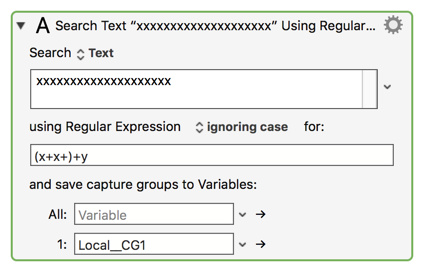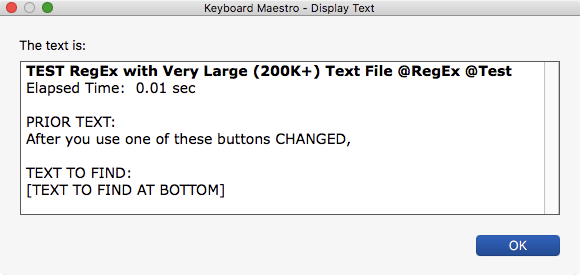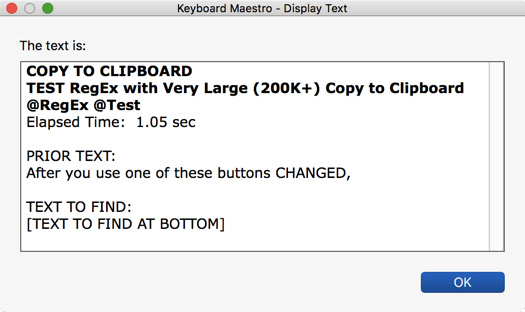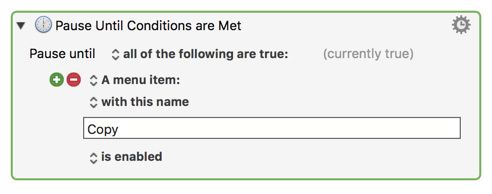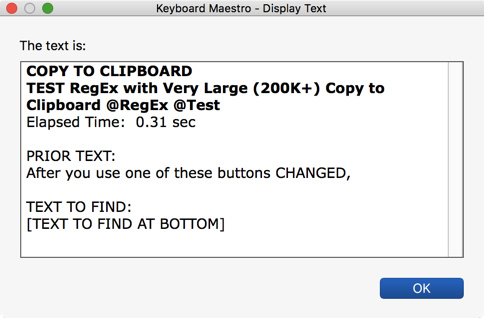A late thanks, but your suggestions did help me to fix the freeze.
I beg to differ! Heh. Actually, I'm sure you know much more about this stuff than I do, but something is causing KM to often go wonky on me.
It happens often enough now that I'm just used to it. I'm already well versed in forcing quit KM and the engine and restart, or at worst restart the computer. What I've found is that it's not exactly a large regex but a large variable. It inevitably won't work and I've learned that I have to keep my variables as small as possible.
For instance, say I create variable A which is very, very large and I need to search it for a lot of things. I learned long ago not to load too many searches into one variable search as that clogs things up too fast (e.g. in one variable search adding in many parentheses so that it captures multiple things in that one search). KM works much better with every variable search in finding only one thing and so I always have a separate variable search box for each one.
But even then, I have to make sure not to have too many on the same macro page, even with a not too big variable to search, or else it will often freeze up too. So I'll put say 5 or so on one macro, then execute a new macro with 5 more and copying the other variable to a new variable for those new five to search, and so on.
BUT even then, if the variable I'm searching is too large all bets are off, and even one tiny little variable search of it will completely freeze KM. It can be a bummer because this type of stuff is the majority of my KM usage, which is why it happens to me so much and why I've learned the maxes that it can go for me.
I've also figured out (better late than never) that shutting down the preferences box helps since KM seems to put more of its power into that when it's open (I generally like to keep it open to view my variables), and also that shutting down the editor while leaving the engine going also helps since KM seems to put more power into that too when it's open and it clogs things up more (I also generally like to keep the editor open while my macros are running for quick changes and such).
But still, even taking all these precautions, I have to be careful to keep variables small. What is the worst is when I need info from the bottom of a large string or text. The best I've come up with is the copy to the clipboard, then only get a substring for the variable, but for some reason KM often won't do it if the substring is too far away from the beginning, no matter how long of a pause I give it. It's led to, on large strings/text, having to use the mouse scroll/click/drag features to get the the right parts, but those take longer and require much more precision and care as it's easier for those to go wrong in general.
I love Keyboard Maestro and it's awesome, but I just felt compelled to reply about this freezing issue since it's the biggest thorn in my side with using macros, and if any of you do have any suggestions on how I can improve my workflow to minimise or eliminate that I'd love to hear it! My usage has been pretty specific so there's lots about KM I don't know yet.


